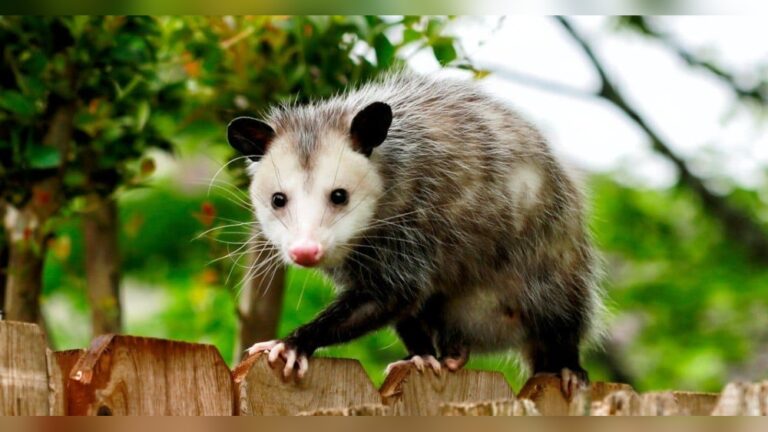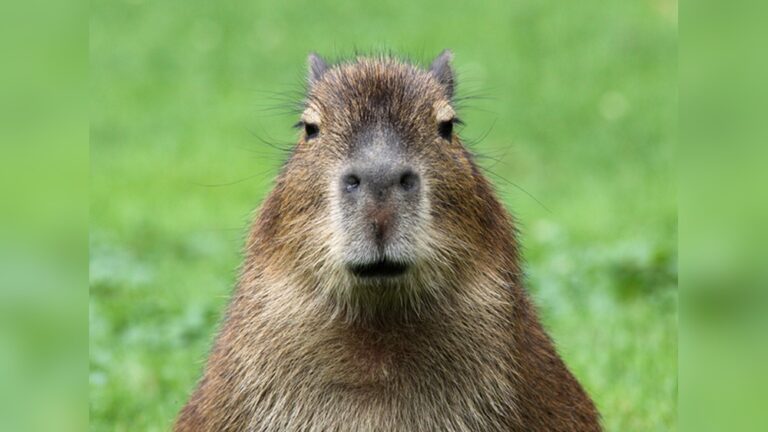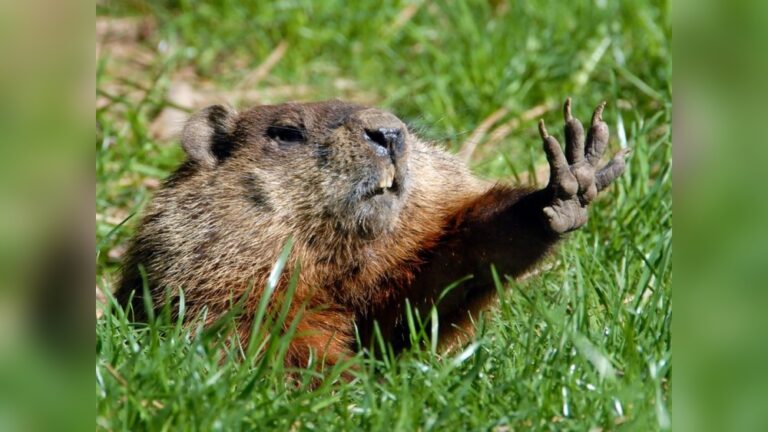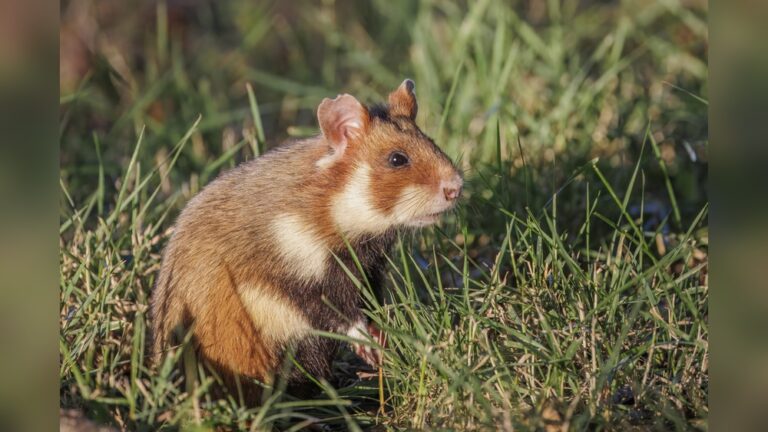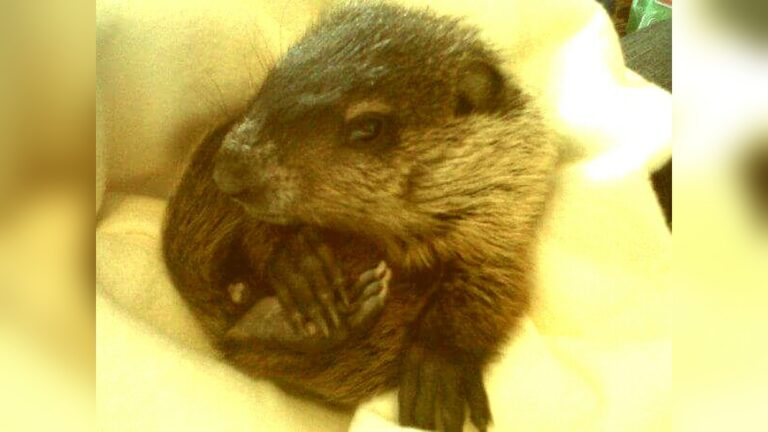Get Rid Of Groundhogs Ammonia: Effective Natural Repellent Tips
Are groundhogs digging up your yard and causing damage? You’re not alone, and the good news is there’s a simple, natural way to keep them away.
Using ammonia is an effective trick that many homeowners swear by. If you want to protect your garden without harsh chemicals or traps, this method could be exactly what you need. Keep reading to discover how ammonia works against groundhogs and how you can use it safely to reclaim your outdoor space.

Credit: www.angi.com
Why Groundhogs Avoid Ammonia
Groundhogs dislike ammonia because its strong smell irritates them. This chemical scent confuses their senses and makes their environment uncomfortable. Using ammonia can help keep these animals away from your garden or yard. Understanding why groundhogs avoid ammonia can help you use it effectively as a natural deterrent.
Scent Sensitivity Of Groundhogs
Groundhogs have a keen sense of smell. Their noses detect scents much stronger than humans can. Ammonia’s sharp odor overwhelms their sensitive noses. This intense smell signals danger or an unsafe area. Groundhogs avoid places with strong, unfamiliar odors to stay safe.
How Ammonia Affects Their Behavior
The smell of ammonia triggers a stress response in groundhogs. They feel threatened and try to escape the area quickly. Ammonia disrupts their normal routines of feeding and burrowing. Repeated exposure teaches groundhogs that the area is not safe. This behavior keeps them away from gardens treated with ammonia.

Credit: pestdude.com
Preparing Ammonia-based Repellents
Preparing ammonia-based repellents for groundhogs is simple and effective. These repellents use the strong smell of ammonia to keep groundhogs away. Proper preparation ensures safety and better results. Below are key steps to prepare ammonia repellents correctly.
Choosing The Right Ammonia Concentration
Use household ammonia with a 5-10% concentration. Stronger ammonia can harm plants and soil. Too weak ammonia may not repel groundhogs well. Find a balance to protect your garden and deter animals.
Look for clear, unscented ammonia. Avoid mixes with added fragrances or detergents. Pure ammonia works best as a repellent.
Mixing Ammonia Solutions Safely
Always wear gloves and work in a well-ventilated area. Ammonia fumes can irritate your skin and lungs. Mix ammonia with water in a 1:1 ratio for a safe, effective solution.
Use a plastic or glass container. Avoid metal containers as ammonia can react with metal. Label the container clearly to prevent accidents.
Store the solution away from children and pets. Use the mixture soon after preparing it. Fresh ammonia smell works better to keep groundhogs away.
Applying Ammonia For Groundhog Control
Applying ammonia is a common method to keep groundhogs away from your garden. The strong smell of ammonia irritates groundhogs and makes them avoid the area. This method is safe and easy to use with the right approach. Using ammonia correctly can protect your plants without harming animals or the environment.
Placement Strategies Around Your Garden
Place ammonia-soaked rags near groundhog burrows or entry points. Use small containers filled with ammonia in areas where groundhogs come often. Avoid pouring ammonia directly on plants or soil to prevent damage. Keep ammonia sources close to holes but out of reach of pets and children. Change locations if groundhogs move to new spots. Spread ammonia around vegetable beds and flower patches for best effect.
Frequency And Timing For Best Results
Apply ammonia every few days to keep the smell strong. Replace soaked rags or containers once the ammonia scent fades. Spray ammonia early in the morning or late afternoon when groundhogs are most active. Avoid using ammonia during rain to prevent it from washing away. Repeat the process for several weeks to ensure groundhogs leave permanently. Consistency is key for lasting groundhog control.
Other Natural Repellents To Combine
Besides ammonia, other natural repellents can help keep groundhogs away. Combining these methods increases your chances of success. Natural ingredients are safe for your garden and pets. They create smells and tastes that groundhogs avoid. Here are two effective options to try alongside ammonia.
Using Garlic And Hot Peppers
Garlic and hot peppers have strong smells and tastes. Groundhogs dislike them and stay away from treated areas. Crush garlic cloves and mix with water to spray plants. Add hot pepper flakes or powder for extra strength. Spray this mixture around your garden’s edges. Repeat every few days for lasting effect.
Planting Groundhog-repellent Herbs
Certain herbs naturally repel groundhogs. Planting these herbs around your garden can help. Try lavender, mint, or rosemary. Their strong scents confuse and deter groundhogs. These herbs also add beauty and fragrance to your garden. Grow them near vulnerable plants for added protection.
Preventing Groundhog Damage
Preventing groundhog damage protects your garden and yard from costly repairs. Groundhogs dig holes and eat plants. Stopping them early saves time and money. Simple steps can keep these animals away without harm.
Using physical barriers and changing your environment are key methods. These reduce groundhog visits and protect your space. Learn how to create a groundhog-unfriendly zone effectively.
Physical Barriers And Fencing
Install fences around gardens to block groundhogs. Choose wire mesh with small holes to prevent entry. Bury the fence at least 12 inches underground. This stops groundhogs from digging under.
Fence height should be at least 3 feet. Slant the top outward to stop climbing. Check fences regularly for holes or weak spots. Repair any damage quickly to keep groundhogs out.
Maintaining A Groundhog-unfriendly Environment
Clear brush and tall grass where groundhogs hide. Remove piles of wood or debris near your garden. These places attract groundhogs and offer shelter.
Use ammonia-soaked rags near burrows or garden edges. The strong smell deters groundhogs without harming them. Replace rags often to keep the scent strong.
Keep your garden clean and free of fallen fruit. Groundhogs feed on fallen plants and fruits. Removing food sources makes your yard less attractive.

Credit: www.youtube.com
Safety Tips When Using Ammonia
Using ammonia to get rid of groundhogs can be effective but requires care. Safety is key to protect yourself and the environment. Follow these simple tips to use ammonia safely around your home and garden.
Protective Gear And Handling
Always wear gloves when handling ammonia. It can irritate your skin and cause burns. Use safety glasses to protect your eyes from splashes. Work in a well-ventilated area to avoid breathing strong fumes. Keep ammonia away from your face and avoid touching your eyes or mouth. Store ammonia in a secure place, away from children and pets.
Avoiding Harm To Pets And Plants
Ammonia can harm pets if they come into contact with it. Keep pets indoors or away from treated areas. Use ammonia carefully around plants as it may damage leaves and roots. Apply it only where groundhogs are active, not on your garden plants. Rinse any plants accidentally exposed to ammonia with water immediately.
How Smart Pets Lover Can Help You with Get Rid Of Groundhogs Ammonia
Turning Groundhog Control into a Learning Experience
Understanding why groundhogs avoid ammonia opens a window into animal behavior and scent-based deterrents. As you prepare ammonia-based repellents and apply them around your garden, you’re not just protecting your plants—you’re engaging in a hands-on lesson about wildlife habits and natural pest control.
Combining ammonia with other natural repellents, such as predator urine or garlic sprays, provides practical insights into how scents influence animal movement and territory marking. This thoughtful approach aligns with Smart Pets Lover’s mission to help pet parents and animal lovers feel confident and connected to all creatures, big and small.
- Observe how groundhogs react to different repellents over time.
- Note the importance of safety tips when handling ammonia to protect your family and pets.
- Explore other natural methods to prevent groundhog damage without harsh chemicals.
For further guidance or questions, reaching out to local wildlife experts or community extension offices can deepen your understanding and effectiveness. Remember, every step taken thoughtfully helps create harmony between your garden and the critters around it—because where every wag, purr, and chirp tells a story, learning never stops.
Frequently Asked Questions
How Does Ammonia Repel Groundhogs Effectively?
Ammonia’s strong smell irritates groundhogs’ sensitive noses. It creates an unpleasant environment, encouraging them to leave. Using ammonia-soaked rags near burrows can deter them without harm, making it a safe, natural repellent option.
Can Ammonia Prevent Groundhogs From Digging Burrows?
Yes, ammonia discourages groundhogs from digging by making the soil smell offensive. Applying ammonia near existing burrows or potential digging spots keeps groundhogs away, reducing damage to your garden or lawn.
Is Ammonia Safe To Use Around Pets And Plants?
Ammonia should be used cautiously around pets and plants. Keep it away from delicate plants to avoid damage. Use in well-ventilated areas and avoid direct contact with pets to ensure safety.
How Often Should Ammonia Be Applied To Repel Groundhogs?
Apply ammonia every few days or after rain to maintain its strong smell. Consistent application ensures groundhogs remain deterred, preventing them from returning to your property.
Conclusion
Using ammonia helps keep groundhogs away from your yard. Its strong smell makes them feel unsafe. Spray ammonia near burrows and problem areas. Repeat often for best results. This method is safe and cost-effective. You can protect plants without harsh chemicals.
Stay patient and consistent to see change. Groundhogs will move on in time. Enjoy your garden without worry again.

